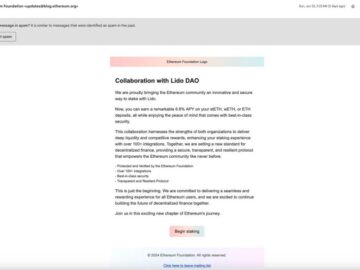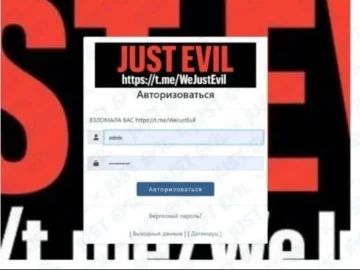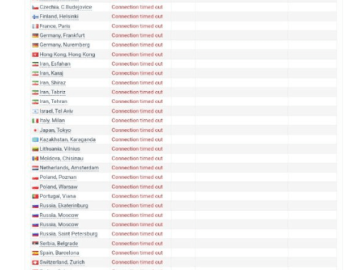Hackers are trying to gain remote access to Ukrainian government and military systems leveraging Remote Desktop Protocol (RDP) configuration files, disguised as popular network and security services. Ukrainian cyber defenders say their investigation revealed meticulous planning that began in August and is aimed at a wider geography.
A new wave of malicious phishing emails targeted at key sectors in Ukraine has been observed by the Computer Emergency Response Team of Ukraine (CERT-UA). Hackers are attempting to exploit the Remote Desktop Protocol (RDP) to gain unauthorized access.
This campaign taps into the popularity of Amazon and Microsoft services, luring targets with promises of integration and the adoption of “Zero Trust Architecture” (ZTA). Attached to these phishing emails are RDP configuration files, and if opened, they allow attackers to connect to a remote server controlled by cybercriminals.
Attack Mechanism: Exploiting RDP Vulnerabilities
RDP is widely used for remote access in enterprise environments. However, in this attack, the “.rdp” files act as the entry point for the threat actors. Once the victim opens the file, it initiates an outbound connection to the attacker’s server.
“Taking into account the parameters of the RDP file, during such an RDP connection, the remote server was not only granted access to disks, network resources, printers, COM ports, audio devices, the clipboard and other resources on the local computer, but also allowed unauthorized running of third-party programs/scripts on the victim’s computer,” CERT-UA said.

This type of exploitation is possible on a machine that has improperly configured RDP settings. CERT-UA has noted that the attackers in this case are taking advantage of these misconfigurations to infiltrate networks, gain access to sensitive resources, and launch deeper attacks.
Also Read: Ukrainian Government Agencies Hit by Stealthy MeshAgent Malware Campaign
Global Implications
Though initially reported in Ukraine, CERT-UA has cautioned that this campaign’s infrastructure shows signs of a wider geographical footprint. The malicious activity dates back to August 2024, with domain names and IP addresses associated with these attacks pointing to preparations spanning multiple regions.
With attackers leveraging common themes like cloud services and zero-trust architecture, organizations worldwide could be at risk.
Strengthening Defenses Against Rogue RDP Files
Reducing the attack surface requires a multi-layered approach, particularly for organizations that rely on RDP for remote access. CERT-UA has issued several critical recommendations to help mitigate the risk of such attacks:
- Block RDP Files: Organizations should configure their mail gateways to block “.rdp” files, preventing users from accidentally launching these malicious configurations.
- Restrict RDP Access: Firewalls should be adjusted to restrict RDP connections (specifically those initiated by mstsc.exe) to trusted internal resources, preventing unauthorized connections to external servers.
- Set Group Policies: Administrators should use group policies to disable resource redirection during RDP sessions, which attackers often exploit to access drives, printers, and other connected peripherals.
Also Read: VectorStealer, Unlocking Doors to RDP Hijacking
Additionally, CERT-UA advises security teams to scrutinize network logs for any suspicious connections on port 3389 (the default port for RDP traffic). Any unusual outbound connections should be flagged and investigated as potential indicators of compromise.
The activity has been assigned the identifier UAC-0215, suggesting it is part of a known campaign or actor group. Although the specific motivations behind these attacks are still unclear, the target selection—government agencies, industrial sectors, and military formations—implies a high degree of coordination, likely pointing to a nation-state or advanced persistent threat (APT) actor.
Below is a list of some Indicators of Compromise (IoCs) listed by CERT-UA:
File Hashes:
a5de73d69c1a7fbae2e71b98d48fe9b5 34c88cd591f73bc47a1a0fe2a4f594f628be98ad2366eeb4e467595115d8505a Zero Trust Architecture Configuration.rdp 8bcb741a204c25232a11a7084aa2221f 071276e907f185d9e341d549b198e60741e2c7f8d64dd2ca2c5d88d50b2c6ffc ZTS Device Compatibility Test.rdp 86f58115c891ce91b7364e5ff0314b31 6e6680786fa5b023cf301b6bc5faaa89c86dc34b696f4b078cf22b1b353d5d3c Device Configuration Verification.rdp 80b3cad4f70b6ea8924aa13d2730328b 31f2cc1157248aec5135147073e49406d057bebf78b3361dd7cbb6e37708fbcc Zero Trust Architecture Configuration.rdp c0da30b71d58e071fc5863381444d9f0 88fd6a36e8a61597dd71755b985e5fcd0b8308b69fc0f4b0fc7960fb80018622 Device Security Requirements Check.rdp 1595266bb78dc1e3d67f929154824c74 b8327671ebc20db6f09efc4f19bd8c39d9e28c9a37bdd15b2fd62ade208d2e8a Device Security Requirements Check.rdp 222c83d156a41735c38cc552a7084a86 a5bbb109faefcecba695a84a737f5e47fa418cea39d654bb512a6f4a0b148758 Device Configuration Verification.rdp fa9af43e9bbb55b7512b369084d91f4d 5534cc837ba4fa3726322883449b3e97ca3e0d28c0ccf468b868397fdfa44e0b Zero Trust Architecture Configuration.rdp 281a28800a4ba744bfde7b4aff46f24e b9ab481e7a9a92cfa2d53de8e7a3c75287cff6a3374f4202ec16ea9e03d80a0b Zero Trust Security Environment Compliance Check.rdp d37cd2c462af0e0643076b20c5ff561e 18a078a976734c9ec562f5dfa3f5904ef5d37000fb8c1f5bd0dc2dee47203bf9 Device Configuration Verification.rdp e465a4191a93195094a803e5d4703a90 bb4d5a3f7a40c895882b73e1aca8c71ea40cef6c4f6732bec36e6342f6e2487a AWS IAM Quick Start.rdp 3f753810430b26b94a172fbf816e7d76 ef4bd88ec5e8b401594b22632fd05e401658cf78de681f81409eadf93f412ebd Device Configuration Verification.rdp 434ffae8cfc3caa370be2e69ffaa95d1 1cfe29f214d1177b66aec2b0d039fec47dd94c751fa95d34bc5da3bbab02213a Zero Trust Security Environment Compliance Check.rdp c287c05d91a19796b2649ebebd27394b 3a2496db64507311f5fbd3aba0228b653f673fc2152a267a1386cbab33798db5 ZTS Device Compatibility Test.rdp aabbfd1acd3f3a2212e348f2d6f169fc 984082823dc1f122a1bb505700c25b27332f54942496814dfd0c68de0eba59dc AWS IAM Configuration.rdp b0a0ad4093e781a278541e4b01daa7a8 383e63f40aecdd508e1790a8b7535e41b06b3f6984bb417218ca96e554b1164b Zero Trust Security Environment Compliance Check.rdp a18a1cad9df5b409963601c8e30669e4 296d446cb2ad93255c45a2d4b674bbacb6d1581a94cf6bb5e54df5a742502680 Device Security Requirements Check.rdp cbbc4903da831b6f1dc39d0c8d3fc413 129ba064dfd9981575c00419ee9df1c7711679abc974fa4086076ebc3dc964f5 ZTS Device Compatibility Test.rdp bd711dc427e17cc724f288cc5c3b0842 f2acb92d0793d066e9414bc9e0369bd3ffa047b40720fe3bd3f2c0875d17a1cb AWS IAM Quick Start.rdp b38e7e8bba44bc5619b2689024ad9fca f357d26265a59e9c356be5a8ddb8d6533d1de222aae969c2ad4dc9c40863bfe8 AWS IAM Compliance Check.rdp 40f957b756096fa6b80f95334ba92034 280fbf353fdffefc5a0af40c706377142fff718c7b87bc8b0daab10849f388d0 AWS IAM Configuration.rdp db326d934e386059cc56c4e61695128e 8b45f5a173e8e18b0d5c544f9221d7a1759847c28e62a25210ad8265f07e96d5 Zero Trust Security Environment Compliance Check.rdp f58cf55b944f5942f1d120d95140b800 ba4d58f2c5903776fe47c92a0ec3297cc7b9c8fa16b3bf5f40b46242e7092b46 Zero Trust Security Environment Compliance Check.rdp
Source IPs:
37.153.155[.]143 (Email) 45.42.142[.]49 (Email) 45.42.142[.]89 (Email) 199.204.86[.]87 (Email) 181.215.148[.]194 (Email) 104.247.120[.]157 (Email) 204.111.198[.]27 (Email) 136.0.0[.]11 (Email) 38.180.110[.]238 179.43.148[.]82 45.11.230[.]105 45.141.58[.]60 95.217.113[.]133 185.187.155[.]74 141.195.117[.]125 185.76.79[.]178 2.58.201[.]112 89.46.234[.]115 84.32.188[.]193 38.180.146[.]210 84.32.188[.]197 45.80.193[.]9 45.67.85[.]40 45.134.111[.]123 84.32.188[.]153 62.72.7[.]213 93.188.163[.]16 23.160.56[.]122 95.156.207[.]121 84.32.188[.]148 166.0.187[.]233 185.216.72[.]196 38.180.146[.]230 84.32.188[.]200 45.11.231[.]8 162.252.175[.]233 13.49.21[.]253 179.43.163[.]18 46.19.141[.]186 193.29.59[.]9 135.181.130[.]232 45.134.110[.]83 185.187.155[.]73 23.160.56[.]100




